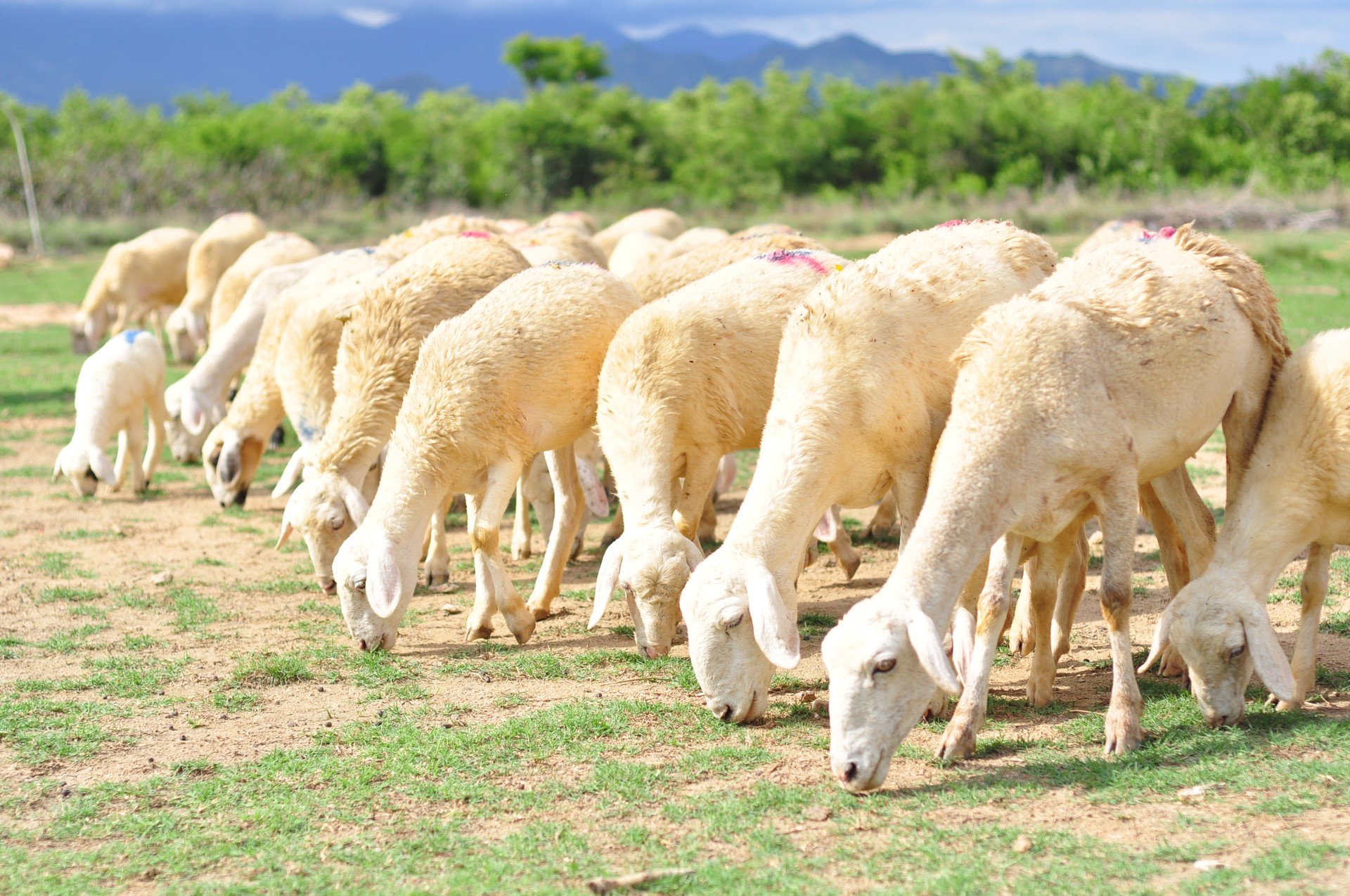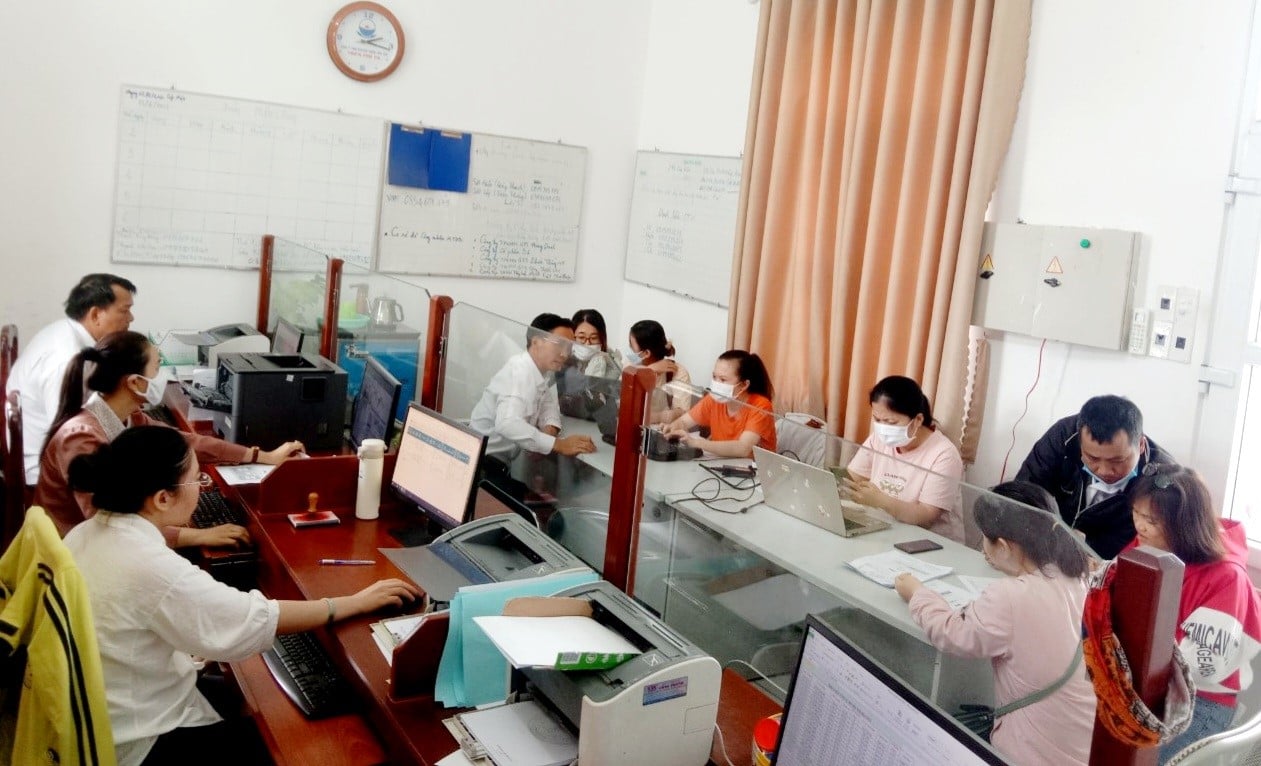November 25, 2025 | 04:05 GMT +7
November 25, 2025 | 04:05 GMT +7
Hotline: 0913.378.918
November 25, 2025 | 04:05 GMT +7
Hotline: 0913.378.918

Applying software in livestock farming helps the Ninh Thuan functional branch accurately know herd fluctuations and well control disease epidemics. Photo: Mai Phuong.
Ninh Thuan currently has a total cattle herd of approximately 514,000 heads, a total pig herd of nearly 163,000 heads, and a total poultry herd of 2.3 million heads.
According to Mr. Pham Van Bao, Deputy Head of Disease Management Department, Ninh Thuan Animal Husbandry and Veterinary Sub-Department, implementing the digital transformation plan of the Ninh Thuan Department of Agriculture and Rural Development in 2023, the Sub-Department recently coordinated with Ninh Thuan Software Company to deploy software application training based on upgrading the software for registration and issuance of quarantine certificates for terrestrial animals and animal products, and at the same time supplementing software with management content in livestock farming and animal disease monitoring.
According to the Ninh Thuan Animal Husbandry and Veterinary Sub-Department, in the past, the work of livestock management at farmer households, livestock farms, livestock breed business establishments, hatcheries, etc. in Ninh Thuan province was all carried out manually through the Animal Husbandry and Veterinary Stations of districts and cities. The stations’ staff will investigate, collect, record in notebooks, summarize, and report periodically or unexpectedly to the Sub-Department's specialized department.
“However, the above-mentioned management method takes much time and effort from veterinary staff. Manual implementation also causes confusion, loss, waste of time searching, and inaccuracy. This method even causes untimely reporting, leading to an impact on the work of assessment, forecasting, and warning on livestock development in the province," said Mr. Phan Dinh Thinh, Manager of the Ninh Thuan Animal Husbandry and Veterinary Sub-Department.
In addition, implementing livestock management by manual methods also affects the planning and development of disease-free livestock farming, the work of forecasting and localizing to control cattle and poultry diseases, policies to support livestock farming, and training in applying science and technology in livestock farming. Especially with the manual method, it is impossible to comprehensively grasp livestock subjects in the area.

The Ninh Thuan Animal Husbandry and Veterinary Sub-Department trains stations’ staff on software applications in livestock and veterinary management. Photo: Mai Phuong.
Realizing that the application of information technology in livestock management is very essential and consistent with the digital transformation orientation of Ninh Thuan’s agriculture sector, this province’s functional branch has made efforts to implement it.
Mr. Phan Dinh Thinh affirmed that the application of information technology in livestock management in Ninh Thuan will bring high efficiency to state management. It helps update livestock data accurately and, at the same time, supports the work of disease inspection, supervision, prevention, localizing, and control.
Thereby, the information management agency can promptly notify and recommend livestock facilities about the epidemic situation in the area. In addition, the work of veterinary management will also be strict, especially for infectious diseases such as African swine fever, bird flu, and lumpy skin disease in buffaloes and cows.
The application of software to livestock management in the area will create a new step in livestock management, contribute to controlling diseases in livestock herds in the locality, and facilitate data access to livestock history and disease evolution history, thereby helping management agencies proactively prevent and control diseases for cattle and poultry.
Mr. Pham Van Bao added that well-managed livestock activities not only help limit diseases in livestock herds in the area but also help forecast output, traceability, and market orientation for each product type.
In the coming time, the Ninh Thuan Animal Husbandry and Veterinary Sub-Department will continue to perfect the software to ensure effective updating of information on the livestock situation to help localities manage livestock farming well.
Support timely livestock households in declaring their activities according to the provisions of the Law on Animal Husbandry. At the same time, the software is where livestock databases are stored and can be quickly updated when necessary to provide information to management agencies, contributing to effective disease prevention and control in livestock herds.
In the first nine months of 2023, the Ninh Thuan Animal Husbandry and Veterinary Sub-Department has handled procedures for issuing over 51,000 quarantine certificates. Of which, the quarantine of aquatic animals reached nearly 25 billion heads, with 48,000 certificates issued. The quarantine of terrestrial animals reached over 21,000 heads, with 3,000 certificates issued.
"With such a large number of daily quarantines while people are limited, if software is not applied in quarantine work, the unit will not be able to handle all the workload," shared Mr. Phan Dinh Thinh, Manager of the Ninh Thuan Animal Husbandry and Veterinary Sub-Department.
Translated by Huyen Vu Thu

(VAN) Green transition is crucial for the Mekong Delta amid climate change and stricter standards, offering a path toward sustainability.

(VAN) Dong Thap promotes agricultural restructuring, forms large specialized farming zones, raises the value of agricultural products and develops toward ecological and high-tech directions.
/2025/11/22/4018-4-213342_747.jpg)
(VAN) The Mekong Delta Agricultural Experts Club has attracted 143 experts and researchers to participate in providing consultancy and contributing initiatives to the development of one million hectares of high-quality rice.

(VAN) Ca Mau’s development of OCOP products opens a path to increasing cooperatives value, helping boost income, expand markets, and affirm collective economy's role.

(VAN) Turning seemingly ordinary coconut shells into unique jewelry and artwork, Nguyen Bang Nhi spreads the value of local culture through her brand, Cocohand.

(VAN) Results from the Sustainable Durian Model Project in Dak Lak have confirmed the critical role of Yara Viet Nam in transferring advanced nutritional solutions to farmers.

(VAN) In Tuyen Quang province, livestock farmers have introduced effective models and innovative practices that significantly strengthen African Swine Fever prevention and control efforts.